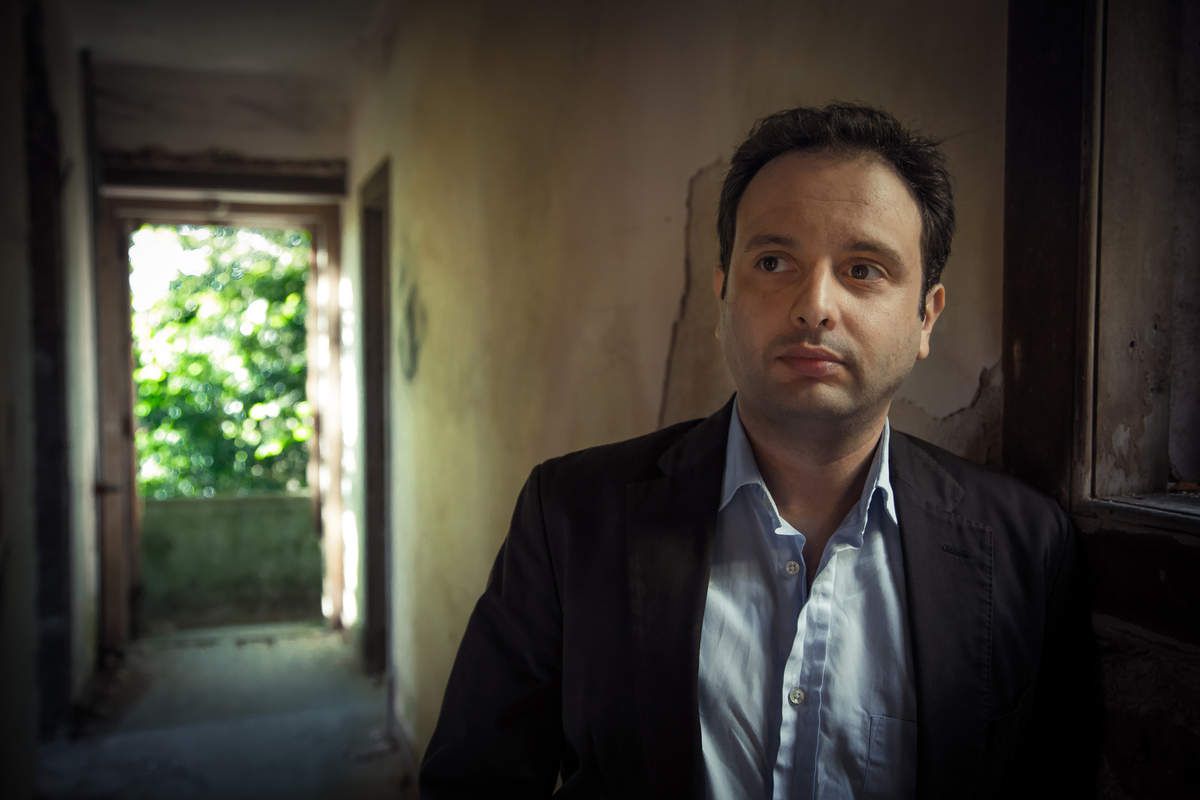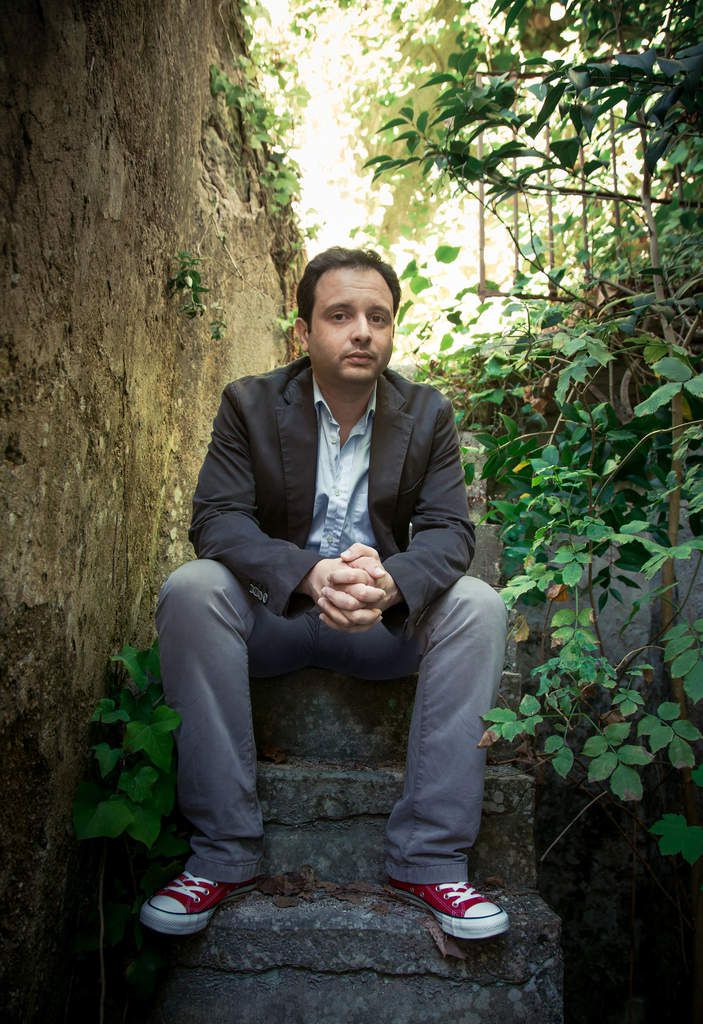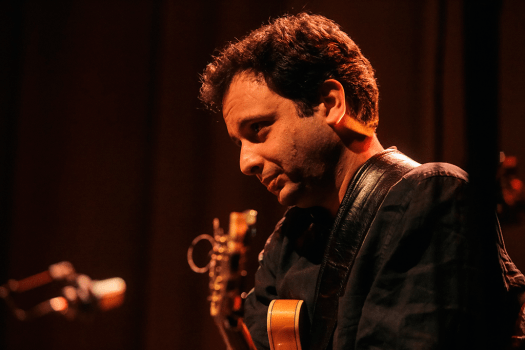Jazz interview with jazz guitarist Nuno Costa. An interview by email in writing.
JazzBluesNews.Space: – First let’s start with where you grew up, and what got you interested in music?
Nuno Costa: – I grew up in Sintra, Portugal and lived there until moving to Boston. A few years later, after graduating from Berklee, I moved back to Portugal to settle in Lisbon. I still go to Sintra every time I can. One of my closest childhood friend decided to take music lessons and I went with him. That’s how it all started.
JBN.S: – What got you interested in picking up the guitar? What teacher or teachers helped you progress to the level of playing you have today? What made you choose the guitar?
NC: – My parents tried classical piano lessons when I was 5 or 6 but it didn’t work for me at the time. Years later and as any other 15 year old, I was a lot into rock and the guitar just seemed the most obvious instrument. I had a lot of great guitar and non guitar teachers and fellow musicians who helped me through these years. António Sousa was my first jazz guitar teacher at a local music school called Acorde Comigo. It’s not an easy decision and to dedicate your life to music needs some support. My parents supported it and I went to the Hot Clube music school to study jazz and to the Academia de Amadores de Música to study classical guitar. António Ferreirinho and Paulo Valente Pereira were incredible classical guitar teachers. At the Hot Clube school I had Mário Delgado, Bernardo Moreira, Pedro Madaleno, Nuno Ferreira, João Moreira and Pedro Moreira as the most inspiring teachers. While at Berklee, Richie Hart, Tim Miller, Mick Goodrick, Dave Santoro, Hall Crook, Richard Davis, Jon Klein and Don Wilkins were the more influential ones.
JBN.S: – How did your sound evolve over time? What did you do to find and develop your sound?
NC: – Practicing classical studies really helped me. To get a full, rich and warm sound is one of the main concerns when someone’s studying classical guitar. As for the rest is just ones choices. I always practice with my full gear on. It is important to know every aspect of my instrument or pedal board to develop my sound. If I practice with an unplugged guitar I’m not able to listen to tone, the sustain, the note pick among other things that has a crucial influence on the overall way I sound. While at Berklee, I remember listening to horn players practicing long notes all day long as the sound was the most important thing. And in fact it is. It doesn’t really matter what you play, you just need to sound good and to nail it. I hope to achieve it one day!
JBN.S: – What practice routine or exercise have you developed to maintain and improve your current musical ability especially pertaining to rhythm?
NC: – The metronome has no replaceable so far. We’ve put aside our divergences and we get along much better nowadays.
JBN.S: – Which harmonies and harmonic patterns do you prefer now?You’re playing is very sensitive, deft, it’s smooth, and I’d say you drift more toward harmony than dissonance. There is some dissonance there, but you use it judiciously. Is that a conscious decision or again, is it just an output of what goes in?
NC: – To improvise over chord changes is a really difficult exercise at all stages. I’ve always enjoyed to be completely out as it is a huge challenge to be in all times. I don’t have a preferred pattern or formula per se but since I mostly play original tunes I definitely feel more comfortable improvising on more contemporary chord progressions.
JBN.S: – How to prevent disparate influences from coloring what you’re doing?
NC: – I usually don’t but I try to fit the occasion. We are a product of our practice and learning routines combined with our personal sensitivity, taste, cultural backdrop and so on. Just like the globalized and glocalized jazz phenomenon. I have a different approach depending on what music I’m playing or even where I’m doing it. A corporate gig doesn’t give that much musical freedom (unless you want it to be the last one ever) but on the other hand if I’m playing my music at a club or a festival I feel obliged to reinvent myself.
JBN.S: – What do you love most about your latest jazz album: Detox, how it was formed andwhat you are working on today.
NC: – Detox was recorded by a band that was already working regularly for the past 8 years. It’s my third jazz album as a leader. I think the band sound we achieved over the years is what I like the most. It was the most relaxed recording session I’ve ever had. Some of the tunes were 1st takes and we didn’t do more than 2 or 3 for each song. It had no post-production to amend or dissemble any mistakes and there are a few. Jazz is also about taking a risk and to accept the consequences. It’s impossible to recreate a past performance and sometimes it sounds better than others. It shouldn’t be that different when recording and I think this one has the right balance. My last record had a lot more to do with the music I grew up with. It’s also the debut of a new band called Saga Cega. The album is called “À Deriva” with thirteen original songs much more related to pop, rock and traditional Portuguese music. I still work regularly with other projects, like my trio NoA.
JBN.S: – What’s the balance in music between intellect and soul?
NC: – The way jazz has been taught over the years in the United States and in Portugal has a huge theoretical approach. It’s the easiest way to teach since you’re able to organize things according to difficulty and a right or wrong system. Be bop dictates the rules and the same solos, patterns, standards and learning process is passed on. Than it comes the difficult part: to help a student develop his artistry and become a musician. A student must understand that he has to discover his own voice when applying those concepts, it is his responsibility. As a teacher I need to encourage and respect different approaches even if I wouldn’t made them myself. I don’t think it is ever possible to play music with no soul at all but some people tend to be more mechanical and others more empirical. Fortunately we’re not alike and there’s room for us all. My main goal is to play by ear, to be able to sing and redesign a melody through my instrument and to improvise conceiving sounds that combined with whatever chord progression can guide the band through a song. The intellect has an important role in achieving all this.
JBN.S: – There’s a two-way relationship between audience and artist; you’re okay with giving the people what they want?
NC: – If I’m working on my own projects it is not a concern but it doesn’t mean I don’t care about the audience reaction at all. There’s definitely a two-way relation but I don’t think about it when I’m composing. When working on music for films or commercials I have to consider the images, the subject and the director’s opinion or of who’s in charge.
JBN.S: – Please any memories from gigs, jams, open acts and studio sessions which you’d like to share with us?
NC: – I started gigging almost immediately after I started learning and playing music but I always felt nervous and anxious before each one of the concerts. I was 19 the first time I played at a festival. I knew the theatre was sold out and while I was a tuning my guitar at the backstage I was feeling that pressure. I connected the cable so hard that the jack input fell inside the guitar. 5 minutes of complete panic, one of my fellow musicians solved the all thing and everything worked out ok. Years later, again at a festival was the premiere of my first album “(…) – Reticências entre Parênteses” and of course I was feeling the moment. Not as much as before but the pressure was there. On our way to the stage, Bernardo Moreira who was playing the bass and had also been my teacher at my early years at the Hot Clube told me: “Nuno, don’t listen to what others say. I think you are very gifted and talented musician.” And he went on to the stage. Needless to say, I felt really comforted of course.
JBN.S: – How can we get young people interested in jazz when most of the standard tunes are half a century old?
NC: – A lot of young people is interested in jazz all over the world, which doesn’t mean they enjoy listening to standards performed and derived from the conventions of the bebop-hard bop style of the 1950s and 1960s. I think that the young audience can easily relate with original compositions that are inspired and incorporate other styles. Musical styles they recognize and that are also part of their musical imaginary. People understand and enjoy jazz even when the music gets really complicated and atonal at times. I think the future of Jazz depends of its evolution, dissemination and appropriation around the world and not so much of a “this is” and “this is not” jazz.
JBN.S: – John Coltrane said that music was his spirit. How do you understand the spirit and the meaning of life?
NC: – I’m driven by a lot of things. I had the opportunity to study music and to make a living as a musician which is an amazing thing. I have a beautiful family, a lot of good close friends and that’s my spirit and has been my way of living so far.
JBN.S: – If you could change one thing in the musical world and it would become a reality, what would that be?
NC: – Extremely well-paid gigs to everyone, with great technical conditions and teleportation whenever we don’t feel like traveling.
JBN.S: – Who do you find yourself listening to these days?
NC: – I frequently ask my students and friends for recommendations. I still listen to old and new rock, contemporary music and try to be close with all my friends’ projects and music. It’s not easy to deeply connect to something because there’s no time. Everyday a new thing comes out and it’s hard to listen to things more than once.
JBN.S: – Let’s take a trip with a time machine, so where and why would you really wanna go?
NC: – When I was a kid watching the family photos I thought the world was also black and white. I would love to travel back in time to be sure about it. I’m not that curious about the future but I would love to go anywhere in the past.
JBN.S: – I have been asking you so far, now may I have a question from yourself…
NC: – What is your opinion on Portuguese jazz? Can you identify distinguishable musical lines and traces?
JBN.S: – Thank you for answers. Yes, of course, from Paleka to Carlos Azevedo, Antonio Pinho Vargas, Mario Joao, Manuel Mota, Bernardo Sassetti, Luisa Sobral …
JBN.S: – So putting that all together, how are you able to harness that now?
NC: – It is always possible to do things in a better way but I honestly don’t regret much. I know I still have a long, long way to go but I’m thankful for what I have and of what I’ve accomplished so far. I just hope to be able to keep composing, playing, teaching, learning and working with music many years to come.
Interview by Simon Sargsyan








More Stories
Interview with Janis Siegel of The Manhattan Transfer: Jazz, being a more refined, interpreted form of music
CD review: George Benson – Dreams Do Come True: When George Benson Meets Robert Farnon – 2024: Video, CD cover
The band was tight as ever. The Warren Haynes Band cuts loose: Video, Photos